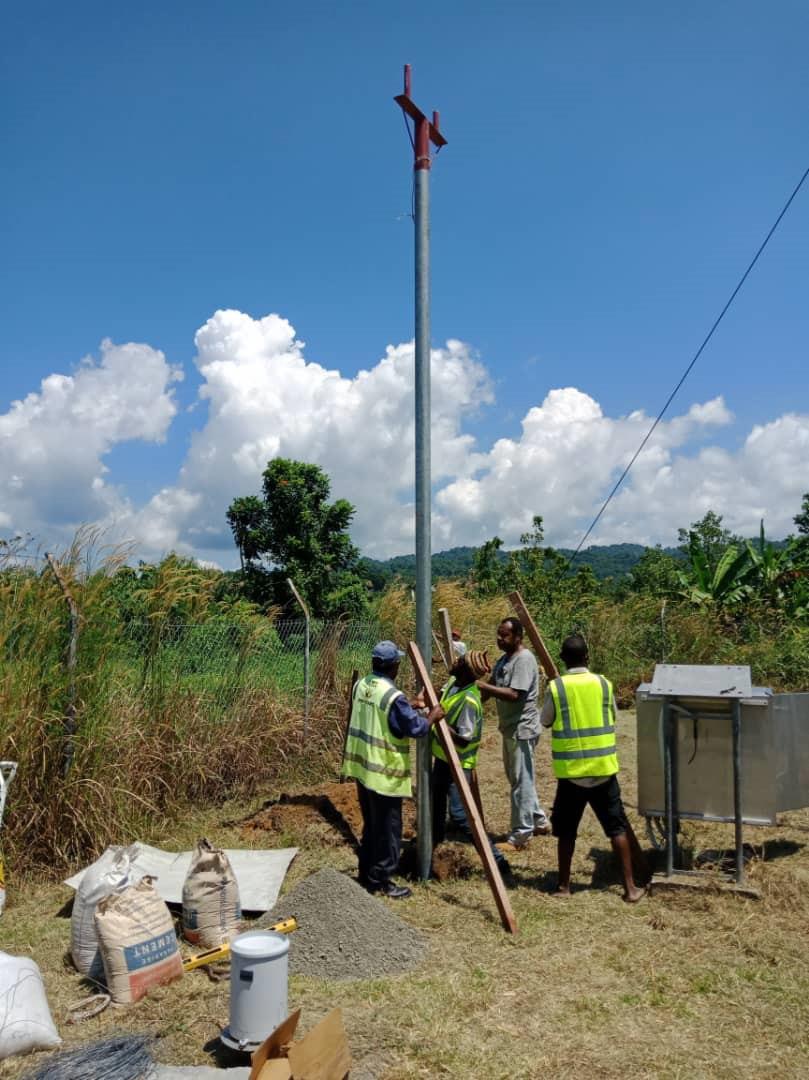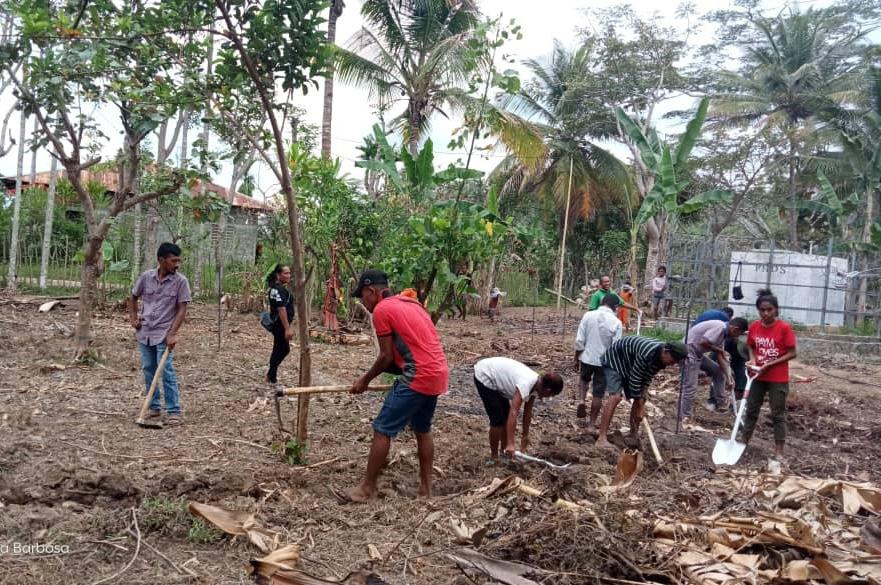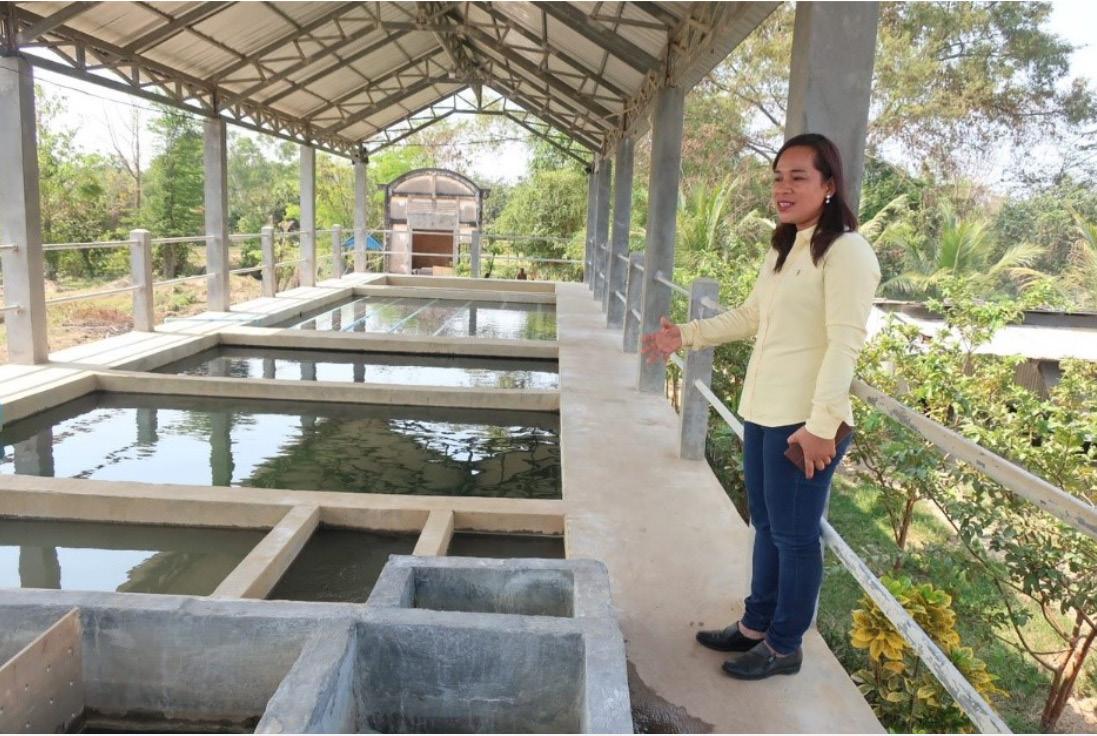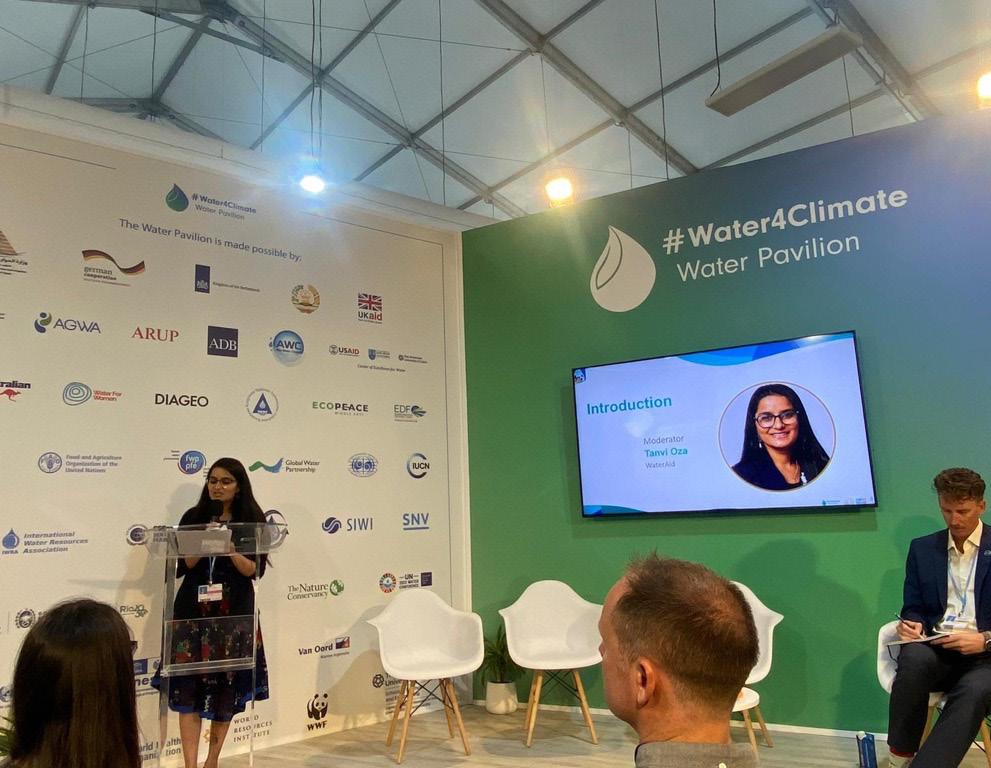
2 minute read
Our Climate Change Response
Developing a district-wide approach to climate resilient water, sanitation and hygiene
WaterAid recently developed and applied an inclusive water, sanitation and hygiene (WASH) and climate adaptation framework under DFAT’s Water for Women Fund Innovation and Impact Grant. Focusing on Wewak District in Papua New Guinea (PNG), this project tested and refined a climate resilient WASH framework at the local, district and national level to establish a district wide process for climate resilient WASH.
Advertisement
One of the key highlights of the project was establishing a partnership with the National Weather Service of PNG, and deploying a weather station to capture climate data in Wewak. This partnership has led to strong collaboration between climate and WASH actors, where the National Weather Service is now the newest member of Wewak’s District WASH Coordination body and local level data is now being fed into national monitoring systems. The data is also useful in undertaking detailed water balance modelling for the district to understand rainfall harvesting opportunities.
An ecosystem-based approach to water resource management in Timor-Leste

To address climate and disaster risk in TimorLeste, WaterAid along with permaculture NGO Permatil have rehabilitated, protected and revitalised community water resources in villages across Timor-Leste. This initiative was funded by the Australian Water Partnership and involved repurposing land to establish new reservoirs within upstream areas of the catchment, and planting trees around them to capture rainwater in the wet season. The captured rainwater then infiltrates into the ground, recharges neighbouring springs, and gives communities access to clean water during dry seasons. It also addresses food security and livelihoods as the community can grow and sell fruits and vegetables, reduces the risks of erosion and landslides from tree planting and soil stabilisation, and also improves natural biodiversity.
“On behalf of our community of more than three thousand people, we appreciate the great collaboration and cooperation between the national and municipal governments for partnering with the local and national agencies for the implementation of this program to strengthen our knowledge and resource mobilisation on sustaining WASH Access.”
Laying the foundations for Cambodia’s first water secure district

WaterAid has been working closely with subnational governments in the Samakki Meanchey District to develop a gender-sensitive and inclusive district-wide WRM plan. The district WRM plan was collaboratively developed by government, the private sector, rights groups and domestic water users.
Rural piped water operators now take increased accountability in securing and improving piped water services including addressing the impacts of climate change. Mrs. Soutieng, the owner of piped water connection business Tbaeng Kpous, built an embankment to protect her water station from emergencies after attending a Standard Operating Procedures for flood and drought training. A few months later, a flash flood hit almost the entire district but fortunately, this embankment protected her station:
“If we hadn’t built this protecting dam or have had a preparedness plan, the water treatment could have collapsed, and may have negative effects in providing water to people. I am proud that I can produce secure and safe water for people, not only for myself but my community also has access to water at ease...”
WaterAid’s global advocacy around climate change
In November 2022, WaterAid Australia’s Regional Climate Change Advisor Tanvi Oza and WaterAid Timor-Leste’s WASH and Climate Technical Lead Angelo Ximenes attended the United National Climate Change Conference (COP27) in Sharm el Sheikh, Egypt.
Throughout the conference WaterAid collaborated with several global organisations to host events at the Australian and Water Pavilions around the importance of climate resilient WASH in the most marginalised communities.
The Australian Pavilion also served as an important platform to launch some of WaterAid’s recent work around climate financing for WASH, as well as sharing experiences of our inclusive programming approaches across Southeast Asia and the Pacific.
WaterAid also engaged with Minister Chris Bowen, Senator Jenny McAllister and Australia’s Climate Change Ambassador Kristin Tilley at the Australian Delegation Ministerial Reception around the importance of WASH as a critical entry point for climate adaptation and how it can be scaled up to address gender equity in Southeast Asia and the Pacific.









